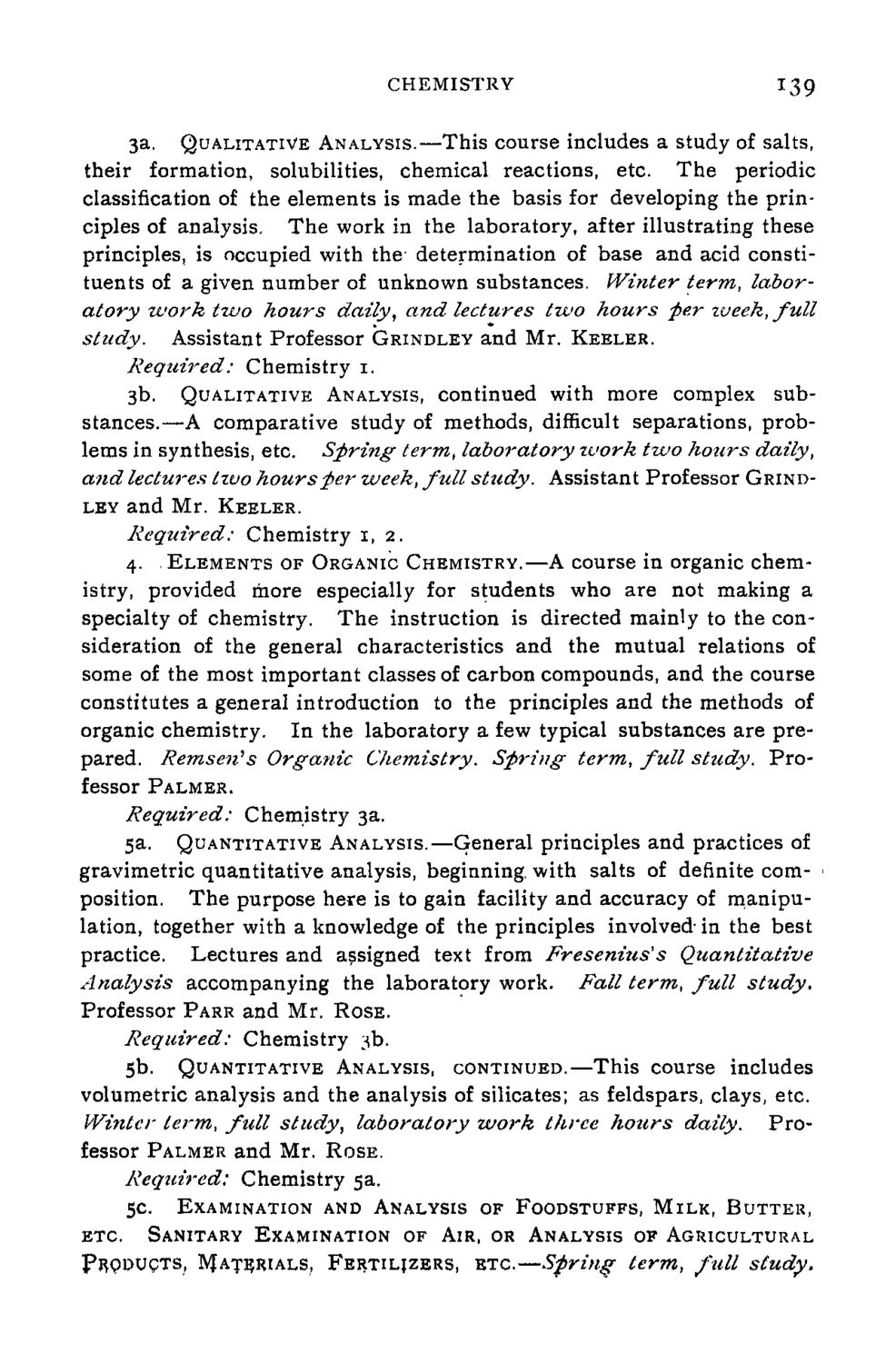| |
| |
Caption: Course Catalog - 1896-1897
This is a reduced-resolution page image for fast online browsing.

EXTRACTED TEXT FROM PAGE:
CHEMISTRY I39 3a. QUALITATIVE ANALYSIS.—This course includes a study o£ salts, their formation, solubilities, chemical reactions, etc. The periodic classification of the elements is made the basis for developing the principles of analysis. The work in the laboratory, after illustrating these principles, is occupied with the determination of base and acid constituents of a given number of unknown substances. Winter term, laboratory work tzvo hours daily, and lectures tzvo hours fer zveek, full study. Assistant Professor GRINDLEY and Mr. KEELER. Required: Chemistry 1. 3b. QUALITATIVE ANALYSIS, continued with more complex substances.—A comparative study of methods, difficult separations, problems in synthesis, etc. Spring term, laboratory zvork tzvo hours daily, and lectures Izvo hours fer week, full study. Assistant Professor GRINDLEY and Mr. KEELER. Required: 4. Chemistry 1, 2. ELEMENTS OF ORGANIC CHEMISTRY.—A course in organic chem- istry, provided more especially for students who are not making a specialty of chemistry. The instruction is directed mainly to the consideration of the general characteristics and the mutual relations of some of the most important classes of carbon compounds, and the course constitutes a general introduction to the principles and the methods of organic chemistry. In the laboratory a few typical substances are prepared. Remsen's Organic Chemistry. Spring term, full study. Professor PALMER. Required: Chemistry 3a. 5a. QUANTITATIVE ANALYSIS.—General principles and practices of gravimetric quantitative analysis, beginning, with salts of definite composition. The purpose here is to gain facility and accuracy of manipulation, together with a knowledge of the principles involved- in the best practice. Lectures and assigned text from Fresenius's Quantitative Analysis accompanying the laboratory work. Fall term, full study. Professor PARR and Mr. ROSE. Required: 5b. Chemistry 3b. CONTINUED.—This course includes QUANTITATIVE ANALYSIS, volumetric analysis and the analysis of silicates; as feldspars, clays, etc. Winter term, full study, laboratory work three hotirs daily. Professor PALMER and Mr. ROSE. Required: 5c. ETC. Chemistry 5a. EXAMINATION AND ANALYSIS OF FOODSTUFFS, MILK, BUTTER, study. SANITARY EXAMINATION OF AIR, OR ANALYSIS OF AGRICULTURAL PRODUCTS, MATERIALS, FERTILIZERS, ETC.—Spring term, full
| |